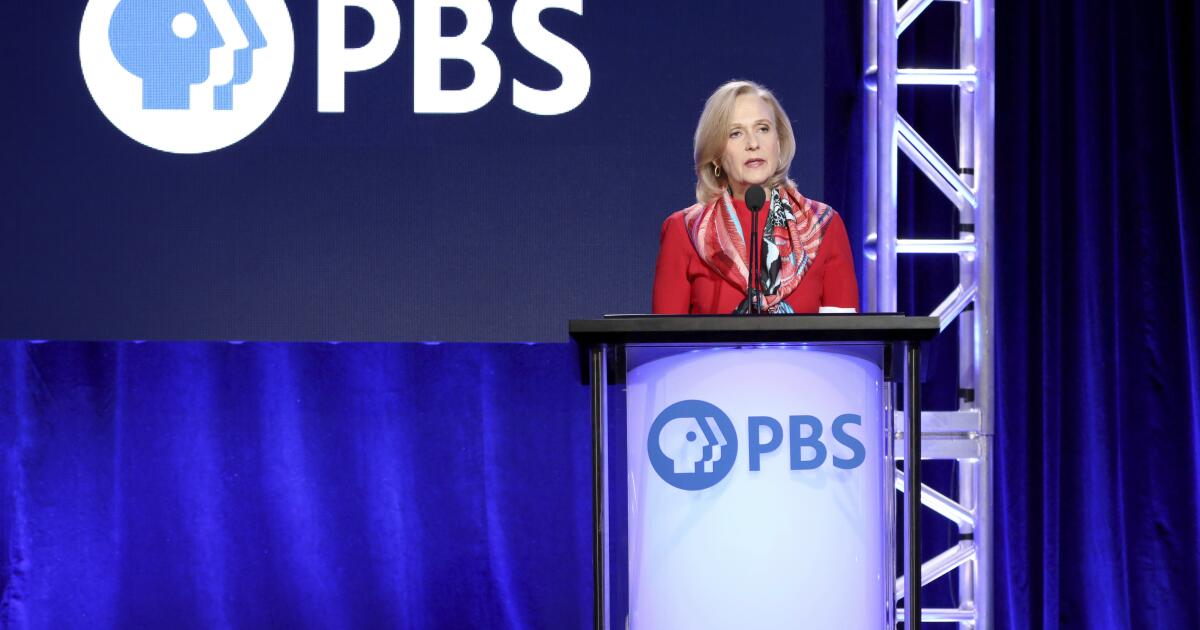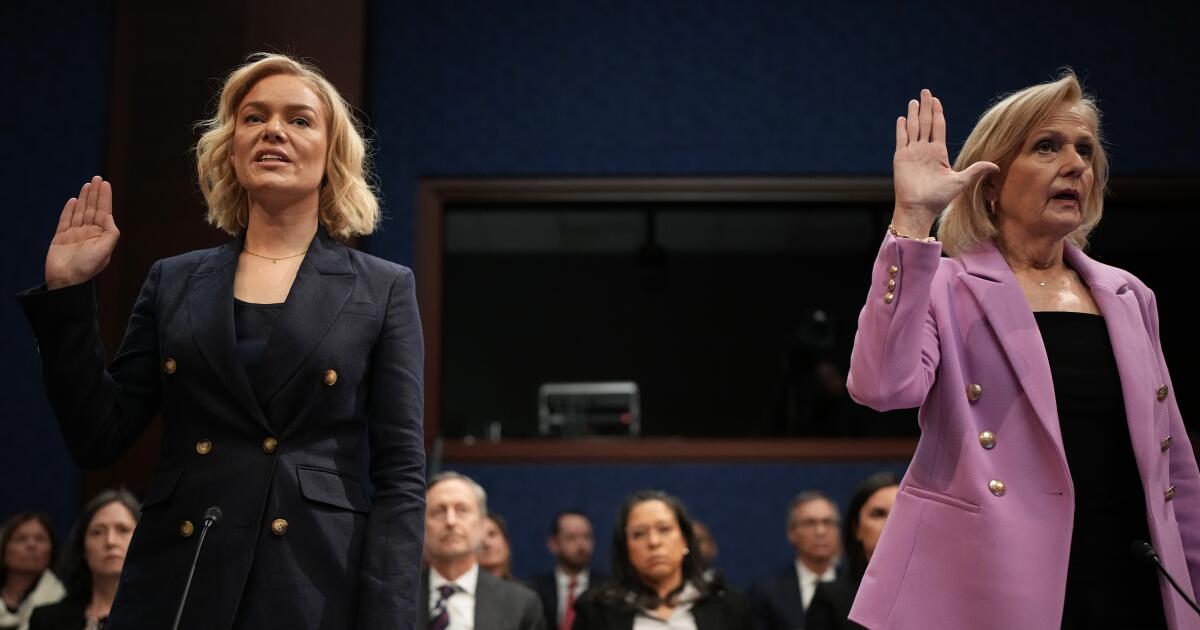After nearly 60 years, Corp. for Public Broadcasting shuts down
The Corp. for Public Broadcasting said Friday it was shutting down, about one week after President Trump signed legislation stripping its funding.
The group, which administers funds for PBS TV affiliates and NPR radio stations, said it would “begin an orderly wind-down of its operations.” A majority of staff positions will be cut Sept. 30, when the group’s fiscal year ends.
“A small transition team will remain through January 2026 to ensure a responsible and orderly closeout of operations,” the nonprofit said in a statement. “This team will focus on compliance, final distributions, and resolution of long-term financial obligations, including ensuring continuity for music rights and royalties that remain essential to the public media system.”
Since returning to office, Trump has made a priority of yanking federal funding for public broadcasters as part of a wider campaign against media outlets that he dislikes. The president derided PBS and NPR as government-funded “left-wing propaganda.” Congress fell into line.
It passed a measure in mid-July that clawed back $1.1 billion that previously had been allocated for public broadcasting for two years.
Separately, lawmakers introduced a Senate appropriations bill for 2026 that excludes funding for the Corp. for Public Broadcasting for the first time in more than 50 years. Conservatives have long wanted to strip funding from public media because of its perceived liberal bias.
The actions left the group without a steady source of operating money — and little hope that more would be on the way.
“Despite the extraordinary efforts of millions of Americans who called, wrote, and petitioned Congress to preserve federal funding for CPB, we now face the difficult reality of closing our operations,” Corp. for Public Broadcasting Chief Executive Patricia Harrison said in a statement.
The organization dates back nearly 60 years and has helped nurture such notable programs as “Sesame Street,” “PBS NewsHour,” “NOVA,” numerous Ken Burns documentaries and “Antiques Roadshow.” Through its partnerships with local stations and producers, the nonprofit made a mission of supporting educational and cultural programming, local journalism and emergency communications.
The move could cripple smaller public stations, including those in rural areas that struggle to mount high-dollar local membership campaigns. The Corp. for Public Broadcasting helps support more than 1,500 local public television and radio stations nationwide.
PBS SoCal, which operates member stations KOCE and KCET in Orange and Los Angeles counties, respectively, was set to lose more than $4 million in federal funding, Andy Russell, president and chief executive of the stations, previously told The Times.
NPR has two large affiliates serving Los Angeles: KCRW-FM (89.9) and LAist/KPCC-FM (89.3).
LAist, based in Pasadena, will lose about 4% of its annual budget — $1.7 million. Alejandra Santamaria, the station’s chief executive, told The Times last month that funding helped pay for 13 journalist positions in its newsroom.
KCRW in Santa Monica had been expecting $1.3 million from the Corp. for Public Broadcasting.
The stations have asked listeners to donate in order to compensate for the shortfall.
“Public media has been one of the most trusted institutions in American life, providing educational opportunity, emergency alerts, civil discourse, and cultural connection to every corner of the country,” Harrison said in the statement. “We are deeply grateful to our partners across the system for their resilience, leadership, and unwavering dedication to serving the American people.”

